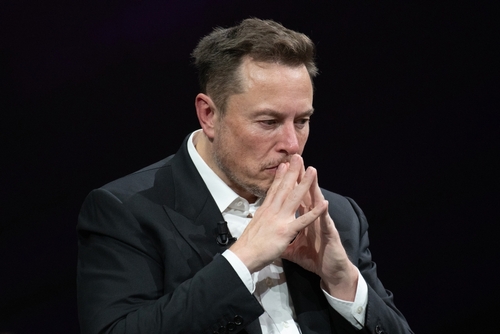Brazil’s recent move to suspend Elon Musk’s X (formerly Twitter) has drawn global attention and could signal how a future Harris administration might approach social media regulation in the U.S. Brazilian Supreme Court Justice Alexandre de Moraes handed down a sweeping order that targeted the platform over alleged “disinformation” and “hate speech.” Brazilian authorities threatened users who circumvented the ban with hefty fines, and even went as far as freezing accounts of Musk’s Starlink satellite service. The country’s hardline approach has provided a chilling example of how governments can flex their muscles to control the flow of information online.
The implications of Brazil’s actions go beyond its borders, particularly for American politics. Vice President Kamala Harris has previously expressed support for similar measures in the U.S., arguing for the need to curb hate speech and disinformation on platforms like X. Harris has echoed sentiments about holding social media platforms accountable, stating they must be responsible for what is hosted on their sites, especially when it involves content deemed as harmful to democracy. Her stance aligns closely with Brazilian authorities’ moves, which have already alarmed free speech advocates across the globe.
Elon Musk vs Brazil's Alexandre de Moraes pic.twitter.com/BJkqGIC14L
— NFK (@nfkmobile) August 30, 2024
Back in 2019, Harris was vocal in her criticism of Donald Trump’s use of Twitter, advocating for his ban on the platform. Her past remarks suggest that should she become president, she may push the Department of Justice to enforce stricter regulations on social media giants. Her running mate, Tim Walz, has also suggested that hate speech and disinformation do not fall under the protections of free speech, further fueling speculation that a Harris-Walz administration would adopt a more aggressive stance toward tech companies.
Critics of such policies argue that what is happening in Brazil sets a dangerous precedent. De Moraes’ actions have raised concerns about governments overstepping in their efforts to combat disinformation, with critics pointing out that these measures could be used to silence opposition voices or curb free speech altogether.
What is going on with Elon Musk? Now he's threatening Twitter employees. He's losing it over this one judge.
This all goes back to an attempted coup by Bolsanaro in 2022. Was Elon involved or what? https://t.co/i4VlmYcSip pic.twitter.com/QRXjhoH1rA
— Karen Piper (@PiperK) September 1, 2024
The fines imposed on individuals using VPNs to access banned platforms highlight the extent to which government oversight can intrude on personal freedoms. Many worry that a similar path in the U.S. would lead to increased censorship and a significant chilling effect on open political discourse.
The left-leaning media has generally been supportive of Harris’s vision, but the implications for free speech in America cannot be ignored. While Harris and Walz appear committed to confronting online hate and disinformation, conservatives view this as an attack on the First Amendment, fearing it could be used to target conservative voices disproportionately.
Republicans, led by figures like Senator Josh Hawley, have warned that Harris’s past rhetoric, combined with her current campaign positions, could lead to unconstitutional overreach if she assumes office in 2025.
Brazil’s move offers a glimpse into what the future of digital regulation might look like in the United States under Harris’s leadership. Many observers believe her administration would likely adopt similar tactics, focusing on holding tech companies accountable for content shared on their platforms. However, this approach is deeply polarizing and could lead to contentious legal battles over the limits of free speech and government intervention online.




